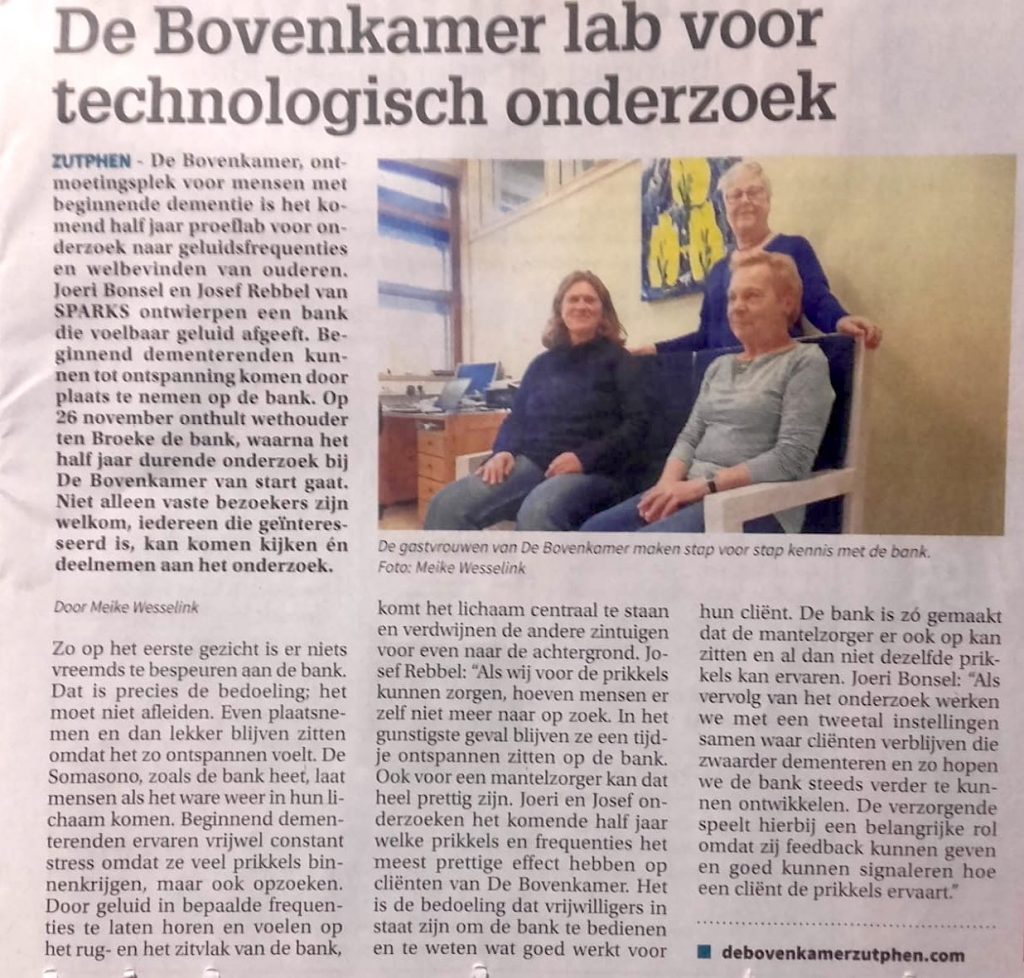Foundation De Bovenkamer lab for technological research
By Meike Wesselink, Contact Zutphen – Warnsveld Thursday 8 November 2018
Joeri Bonsel and Josef Rebbe from SPARKS designed a sofa that delivers tactile sound. People with incipient dementia can relax by taking a seat on the couch. On November 26 City Commissioner Ten Broeke will unveil the couch, after which a half-year study will commence at Foundation De Bovenkamer. Not only regular visitors are welcome, everyone who is interested can come and watch and participate in the research. At first sight, there is nothing strange about the sofa. That is precisely the intention; it must not distract. Take a seat and then sit comfortably because it feels so relaxing. The Somasono, as the seat is called, makes people, as it were, come back into their bodies. People with incipient dementia experience almost constant stress because they get a lot of stimuli, and are in need of stimuli at the same time. By allowing sound to be heard and felt in certain frequencies on the back and seat of the sofa, the body comes to the fore, and the other senses disappear for a moment into the background. Josef Rebbe: “If we can provide harmonizing stimuli, people will no longer have to look for them themselves. At best they stay relaxed on the sofa for a while, instead of roaming through the room, what they often do to create stimuli. This can also be very pleasant for a caregiver.” Joeri and Josef are investigating within the next six months which stimuli and frequencies have the most pleasant effect on clients of De Bovenkamer. The intention is that volunteers can operate the couch and know what works well for their client. The sofa is designed in such a way that the informal caregiver can also sit on it and may or may not experience the same stimuli. Joeri Bonsel: “As a follow-up to the research, we are working together with two institutions with clients in heavier states of dementia, and so we hope to continue developing the chair. The caregivers play an important role in this because they can provide feedback and can properly identify how a client experiences the stimuli.”

